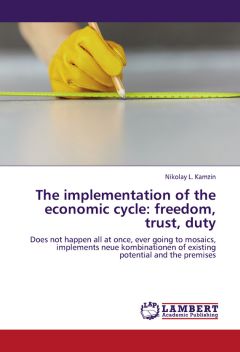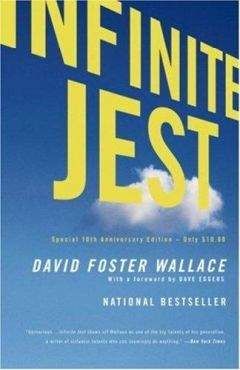Nikolay L. Kamzin
The implementation of the economic cycle: freedom, trust, duty
In the philosophy developed in the direction called existentialism, it proclaims the idea of a man present, and therefore, performing a search for meaning, making choices, self-determining in its relation to reality, possessing an active subjective entity. Under the existence of the mean residence time and in space. Inherent absurdity of existence and authenticity. The absurdity of this discrepancy, the distortion of the «expected» that is identified by an impossible situation. Not authentic – the real mismatch, in a particular time and space is the place to be one situation, but it should be otherwise.
Philosophy explores the human rights of the person and explores it as belonging to the realm of spirit, science explores the same person as belonging to the realm of nature, that is, outside of man as an object. Philosophy should not be an object, because there is nothing for it should not become an object objectified. The main feature of the philosophy of minds that that there is no object of knowledge. To know of the man and in man and therefore does not objectify. And then just open sense. The meaning is revealed only when I am in myself, that is, in spirit, and when it is not for me «object» objectivity. All that is for me an object, devoid of meaning. The meaning is only that in me and with me, that is, in the spirit world[1]. In the mind of man, and the next moment of its existence is determined by the projection of consciousness into reality.
Conscious existence is determined by the conscious realization of the projection, and intellectual activity takes place both in the perception of reality, that is, the analysis of reality, and the implementation of the world picture, that is, choosing the order of future activities. If a person went to the creative process of understanding reality and creatively realized his attitude toward it, the result is a dynamic many variants the reality of a social group, but this is only possible under the rule of humanity, in circumstances where the above is put creative people, because Jean-Paul Sartre and formulated his thesis «existentialism is a humanism»[2]. In the functional world more urgent following the procedure of «man – a cog mechanism», «Planetary bacteria», according to the expression of Adolf. Hitler[3] that is dynamically stable for a conflict of consciousness and world view, and therefore has a place to be absurd and not the authenticity of human existence.
Person dies, the personality is dissolved in the average. A person ceases to be itself and become «all», we enjoy and have fun, fun people, we read, watch and judge about literature and art, as people look and judge... we find «outrageous» that people find «outrageous»[4]. This is the reality conformist. Freedom – the presence of a choice option and the implementation of the outcome of the event. In the ethics of «freedom» associated with the presence of the free will of man. Free will imposes on the person responsible, and imputes the merit of his deeds. An act is moral only if it is made of free will is free will. In this sense, ethics is aimed at the realization of their freedom and the associated liability. Freedom and responsibility lie in the fact that the interpretation of reality needs to be done not just a choice but to recognize the reality and interpret it in a certain way, and according to its own facilities to implement its deliberate reflection. A view is a projection and self-realization takes place as individual responsibility for the result is available in a particular space and time. That is, freedom and responsibility are attributes of the creative process, and the conscious activity that contribute to diversity and beauty of general and individual reality.
Every moral act is based, essentially, out of a desire to adopt what is lacking in reality, he seems to be up for the lack or violation of the true state[5]. But this is a manifestation of subjective morality, and the reflection of the individual perception and awareness of the world picture.
In the process of economic activity a person is faced with the action of their own will influence other areas of the will of the active agents. He needs arise that require his satisfaction, he is involved in the economic cycle, some of which sectors are investigated in this study, namely:
– Entrepreneurship, as a consequence of the implementation of a new combination of natural factors;
– Business risk as a source of entrepreneurial profit and a catalyst for economic activity;
– Business as routine economic activities aimed at developing the existing building;
– International business, as economic activity is possible at a potential that is created by public constraints;
– International payments, as the movement of financial resources for a business;
– Writ proceedings, as inevitable, the procedure of execution of mutual obligations with the participation of the public entity;
– Collateral relations, as security relationships that create a safety buffer for the counterparty.
Theoretical and methodological basis for the research were the works of local and foreign experts. It is necessary to allocate research and writings such as В.С. Автономов, Д.А. Аксенов, П.В. Алексий, В.Н. Аргунов, М.В. Арканников, Е.С. Батманова, Р.С. Бевзенко, В.А. Белов, Г.Н. Белоглазова, М.К. Беляев, Н.А. Бердяев, И.А. Бланк, О.Т. Богомолов, В.Г. Брюков, Н.В. Букина, М.К. Бункина, Г.Н. Бурлак, Ю.В. Бусловская, А.Ю. Буркова, Н.А. Бутузова, Д. Васильев, Л.Г. Вострикова, Н.К. Врагова, Ю. Грибанов, Л.П. Григорьева, О.В. Грицай, Ф.А. Гудков, П.А. Гутынин, О.Н. Диордиева, Д.В. Добрачев, Д.В. Дождев, С.И. Долгов, Б.Ю. Дорофеев, Е. Евтюхина, А. Егоров, И.В. Емельянова, В.Л. Ерохин, Е.Ф. Жуков, С.К. Загайнова, Н.В. Золотько, О. Исаенкова, К.В. Карашев, В.С. Карелин, М.Ю. Катвицкая, А.П. Киреев, М. Киселев, Г.К. Кобахидзе, В.А. Козбаненко, Н.Д. Кондратьев, А. Коневский, Е.В. Копалов, К.Н. Корищенко, О.Г. Королев, М.И. Костоева, Е.П. Кочаненко, Л.Н. Красавина, С.В. Крахмалев, В.М. Крашенников, И.М. Кретов, В.В. Круглов, М.В. Ксенофонтова, С.А. Кузнецов, Т.А. Кузьмина, О.И. Лаврушина, Ю.М. Лермонтов, Д.П. Лиговская, А.Ю. Лисицын, А. Максуров, Г. Малумов, А.С. Мамзина, А. Маркина, Н.И. Масленникова, С.В. Маслов, В.А. Мещеров, А.А. Миннибаева, Д.В. Минимулин, А.П. Миронова, А.М. Михайлов, Д.М. Михайлов, В.П. Мозолин, С.Р. Моисеев, И.Б. Морозова, С. Нестин, В.Ю. Никитина, С.В. Николюкин, И.Б. Новицкий, М.В. Образцов, Д.А. Паленов, И.В. Перелетова, Д. Петров, О. Плешанова, И.А. Подколзина, Ж.А. Подкопалова, И.А. Покровский, Д.В. Половинкин, В.В. Поляков, М.А. Портной, А.И. Потемкин, Д.В. Пристансков, К.В. Раев, Н.Ю. Рассказова, С. Ремезова, В.И. Решетняк, И. Рябинина, А.А. Рябов, Т. Сальван, А.Е. Самсонова, А. Саркисянц, И.Н. Сбитнева, В.В. Седов, Т. Сивак, Н.Л. Симутина, В.В. Скворцов, А.А. Слуцкий, С.Б. Смитиенко, Ю.А. Соколов, И.Е. Солова, С.К. Соломин, А. Сочнев, А.Г. Спиркин, О.П. Строгонова, А.А. Суэтин, А.М. Тавасиева, М.Ю. Тихомиров, П.С. Томилов, К.В. Требич, А.М. Треушников, Д.А. Туманов, Л.Н. Тэпман, И.З. Фархутдинов, Р.Г. Фахретдинов, Г.Г. Фетисов, М.А. Черемин, А.В. Шамраев, Л.Б. Шейнин, Н.С. Шиловская, С.В. Шмыкова, М. Шубенко, Ю. Шумилов, А.В. Юдин, В.В Ярков, Я.С, Яскевич.
The research and works of foreign experts: George A. Akerlof, Frederic Bastiat, Albert Camus, I. Dunning, Jeffrey A. Frankel, Ricky W. Griffin, Friedrich August von Hayek, Richard Head, Martin Heidegger, Thomas Hobbes, John Maynard Keynes, Mathai Koshi, Jeffrey K. Liker, Alfred Marshall, Karl Heinrich Marx, K. Menger, Roger LeRoy Miller, Ludwig von Mises, Herve Moulin, Michael W. Pustay, Jean-Paul Charles Aymard Sartre, J.A. Schumpeter, Walter Scott,W. Shakespeare, Vera C. Smith, David D. VanHoose, Bluma Zeigarnik.
Also was used legislation, official statistical publications of international organization (IMF, WTO), the states, international banks and institutions. In the text of the research includes a list of references containing 264 items.
Chapter 1
Practical aspects of neue kombinationen
1. The essence of international enterprise
Research of the phenomenon «entrepreneurship» is a long time, according to George A. Akerlof naturally the first entrepreneurs to become merchants who have skill to determine the quality of inputs and to certify the quality of the finished product[6]. They were not just enterprise, in view of trading activity on the territory of several states, they can rightfully be called the subjects of international enterprises. With one amendment, the specialization of a trading activity. This amendment in view of the author is able to provide access to modern knowledge, at the time of the merchants, it would be inappropriate. What underlines the relevance of the problem, the solution of which is devoted to the study. The question about the source of additional income has always been central in identifying the essence of entrepreneurship[7].
For the study of any dynamical and structural extensive system requires a lot of intellectual effort. In order to facilitate and justify the application of a systematic approach should begin with knowledge of the essence of the phenomenon. Having learned the essence, identifying potential internal and external display can clearly represent the structure and dynamics of the phenomena deduced. Specifying the study by examining the individual elements, and identifying cause-effect relationship of the dynamic state of the phenomenon and the world around him. International entrepreneurship as a phenomenon involved in the activity in many areas of society. The knowledge of his nature will allow all stakeholders to harmonize the internal mental processes and environmental reality. The consumer uses to access the world's goods. The entrepreneur is critical and represents their innovative ideas. Enterpriser realizes in practice commercial projects. The State creates conditions for personal development and political and economic means affect the cross-border commodity and cash flows.
A variety of trans currency transactions are euro currency (euro currency) transactions made in foreign to both sides of the transaction currency[8]. From the cumulative result of their success depends on the state, if we consider it as an active subject of the economic sphere. The essence of international enterprise is that having ideas about the mechanisms of functioning of the society to rationalize them to meet social needs.
The philosophical category of the «essence» will determine the internal potential of the phenomenon through its manifestation in the outer world, a set of properties and quality characteristics, which are installed by enhancing the social interdependence.
Entrepreneurship is an activity of the economically active entity based on the innovative vision of public relations, with the inherent risk of adverse consequences as a result of miscalculation, mistakes or re-building of its own[9]. International enterprises think it appropriate to define the broad and narrow sense. In a broad sense, it is international enterprise, the implementation of well-known economic combinations in the most favorable conditions. In a narrow sense, it is the generation of practically important ideas by using the potential of the global community.
Internal entity is represented by the world's information accessible to potential creative individuals in order to understand and use, the modeling of potential combinations used for innovation and streamlining of existing enterprise.
Outside entity is represented by the current level of implementation of the ideas of creative individuals and capacity building for their further development. Improvement of international monetary relations, it is impossible to become an entrepreneur, do not become pre-debtor, which reflects the inner nature of the development process. Regulation and development of practices to meet the financial requirements for entrepreneurs, for whatever reason, have not been able to accumulate entrepreneurial profit. Formation of the purchasing power of funds for implementation, at this point, the emerging and potentially relevant to the realities of the future «neue Kombinationen».
1.1. The essence as a philosophical category
The essence as a philosophical category, which defines the object of study from the standpoint of its practical relevance in the modern paradigm, describing it in terms of properties, characteristics, interdependencies with the surrounding reality. In the philosophy of nature as a category has a dual definition, the object has an internal and an external entity. Categories – a form of reflection in thought of the universal laws of the objective world[10].
The inner essence characterizes the potential of the subject, and the outer sum of its practical dynamics. Having come to know the inner essence can draw conclusions about the natural features which are characteristic properties, potential, define the «personality» of the object. Having learned the external entity can draw conclusions about the activity and the applicability of the «identity» in contemporary reality. Outside entity exposes the set of connections and relations of the subject and the world around him.
Thus, the essence of this definition of a static phenomenon, with the identification of his «individual» characteristics and capabilities, as well as a dynamic phenomenon, with an exposure or concentrating on a set of relations the object under study and other social phenomena that is the subject of knowledge in a practical reality.
Outside entity characterized by the set of established links and relationships between the object under study and the world around him. These connections can be initiated by both the environment and as a result of internal or external stimulated reasoned decisions already active subject. Mechanism for further cooperation outlined in the psyche, the human mind, or formed by nature in the potential effects and is waiting for complete implementation.





![Rick Page - Make Winning a Habit [с таблицами]](https://cdn.my-library.info/books/no-image-mybooks-club.jpg)